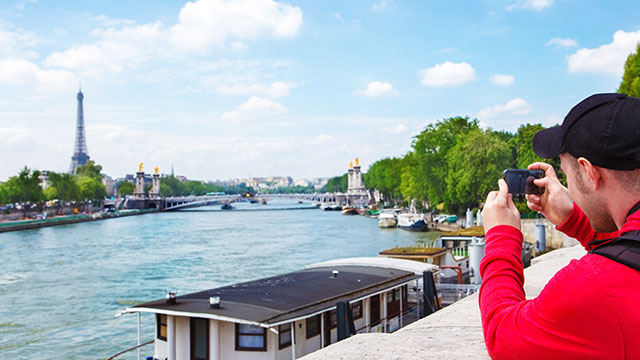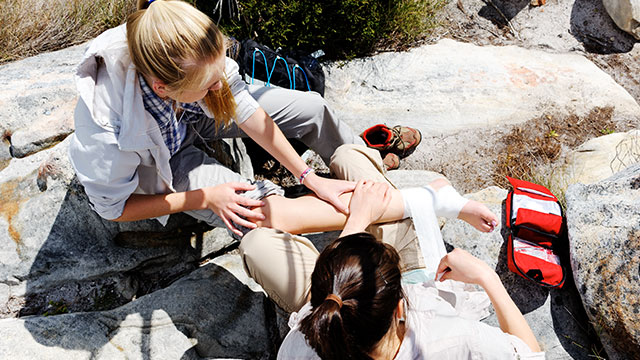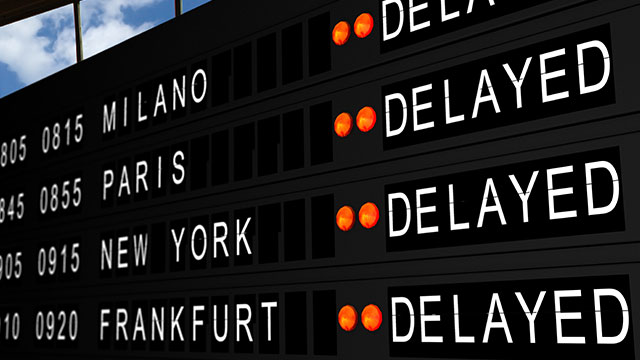SUMMARY
This is AI generated summarization, which may have errors. For context, always refer to the full article.
MANILA, Philippines – We travel to learn, to explore, and to dream.
It’s fulfilling to create a list of destinations and to mark each city as you reach them. Booking flights, researching itineraries, and finding accommodations are now more convenient than ever, so less time is needed to prepare for these adventures.
But before packing those bags, double-check your bucket list. You might be forgetting about the other side of traveling: contingencies. If you’re not prepared for accidents or medical emergencies (and they happen all the time), your dream trip might turn into a nightmare.
Here are a few examples.

“Backpack across Europe”
Pose beside the Eiffel in France, eat non-stop in Italy, visit the cathedrals of Spain, and gape at the Swiss Alps. You can do all these if you have a Schengen Visa, which allows you to travel freely in 25 European countries for up to 90 days.
Is it hard to get a Schengen Visa? Among other requirements, you’ll need to present proof of travel insurance worth at least 30,000 Euros. The insurance provider also needs to be one that’s accredited by the Schengen embassies.
Some countries, like Australia, have reciprocal arrangements with select European countries that will waive this requirement. But in the case of the Philippines, this is a must. Without it, your dream Schengen Visa will not be issued.

“Climb a new peak every year”
Are you a thrill-seeker? Aside from packing your equipment, don’t forget another type of protective gear – insurance to buffer the cost of medical emergencies.
Your love for great heights, rapids, or rough terrain comes with safety risks. Being 100% confident does not completely eradicate the possibility of accidents, natural calamities, or other circumstances that can put your life in danger.
You might say, “That’s OK. I can pay for my medical expenses myself.” But what if you experience a major medical emergency? There are many factors to consider – hospitalization, surgery, home care, medicine, and transportation.
For serious injuries, you might even have to be medically evacuated or repatriated. You should be prepared to have a family member travel to where you are to provide compassionate care – or your insurance provider should be able to cover it.
If you’re in a different country, the costs could double or even triple. For example, one insurance claim filed under Blue Cross reached P2.5 million, for a spinal injury. Costs for a pneumonia claim reached P800,000.
Without a coverage plan, can your savings handle it?
Aim to set a new record with your personal skills, not your hospital bills.

“See a different side of the world”
When on a different country, it’s a must to try new things – food, local customs, rituals. But these exciting ‘firsts’ have a flip side: unexpected ailments that strike with the unfamiliar.
Getting sick while on vacation is stressful enough – but being far from home, language barriers, and worrying if you have the budget can double the anxiety not just for you, but your family.
Before leaving for a trip, get the necessary travel shots, pack a small first-aid kit, and bring medication for headaches, flu, or stomachache. It’s also a good idea to research on hospitals or emergency numbers in the area you’re visiting and to list them down.
You need to have a contingency plan that will cover not just the expenses, but assistance you’ll need in case you get sick. For example, your travel insurance plan can provide for emergency message transmission, interpreter and legal referrals, and arranging for compassionate visits by your loved ones.

“Fill up my passport before it expires”
Not all emergencies are medical in nature. If you misplace or destroy your passport, money, visa, or other important documents, your adventure might be over before it even begins.
Setbacks like flight delays, trip termination, baggage loss and damage happen all the time. Political uncertainty and civil outbreaks are also becoming common travel woes.
While some situations aren’t life-threatening, you could lose money over non-refundable costs for unused tickets or tour packages.
To minimize the hassle, veteran travelers recommend scanning all your digital documents and keeping both hard copies and soft copies in your email account. Don’t bring all your money and cards when you head out – make sure to keep your cash in different places such as your bag or pocket, and leave some behind at the hotel.
Share your itinerary with someone back home. That way, they’ll have an idea where to reach you should news of an emergency arise.
Getting travel insurance can also protect you from losing money due to cancelled flights, itineraries, and lost luggage. It’s a good idea to consider it each time you leave home for a trip.
This list is not meant to discourage you from traveling – in fact, it’s one of the best things you can do for yourself. But it’s best to have all the bases covered so that you can have a great time wherever you end up. – Rappler.com
Photo of man taking photo of Seine River and Eiffel Tower from Shutterstock
Photo of man with travel backpack on top of boulder from Shutterstock
Photo of woman with sprain being assisted by her friend from Shutterstock
Add a comment
How does this make you feel?
There are no comments yet. Add your comment to start the conversation.